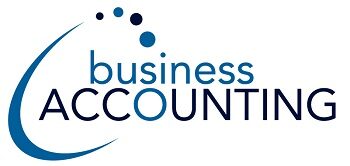The concept of tax deduction is fundamental to any income-earning venture as it enables firms to arrive at a lower taxable income since it withholds certain expenses out of its total revenue. These deductions can contribute immensely to reducing the tax burden on a company, but they are normally associated with some rigorous conditions to be met and some restrictions. This is where such professionals as accountants are so important. Their knowledge of the matter must help business entities get the most out of their deductions, especially in terms of the laws on taxation.
Here are some main ways that Accountants can help with tax deductions.
1. Once you know your eligible deductions,
Accident accountants are fully aware of different expense allowances that a businessman may adopt, including victory, letterhead, traveling, emolument, points of sale, and marketing costs. They are up to date with modern tax provisions and hence devise every legal way possible to ensure that all the company’s eligible deductions are captured. With this knowledge, businesses might note some deductions they can make.
2. Navigating Complex Tax Codes
Still, the tax code is often complicated, and even a slight misunderstanding could open problems with tax agencies. While most employees know these complexities, accountants have had professional training to determine claims that are legal deductions. For instance, they understand which costs should be supported, which may be claimed in full or partially, and for how many years invoices can be stored. This avoids misunderstandings that result in non-compliance, penalties or missed deductions, among others.
3. To recognize strategic expenditures
An accountant, Telford, has suggestions about the timings of the expenses that help to make additional deductions that are helpful to the companies financially. For example, a company might decide to buy equipment or spend money on software updates before the end of the year in order to maximize the annual deduction allowance. Thus, the business’s cash flow shall be better controlled by controlling the spending to the extent that the losses’ posting can be optimized to provide for the most suitable time.
4. Helping with Depreciation
In large fixed assets such as equipment or any property, the businesses can claim the depreciation in successive years. Another way an accountant, Dudley, helps is when calculating the depreciation schedules and distinguishing which is suitable. This manner of carrying forward the tax benefits makes it possible to accrue continuing rather than one-shot deduction value-added, which should be of great advantage to organizations that are capital-intensive.
5. Tamper Proofing and Documentation of audits
If a business has been audited, it is crucial to have all the proper documentation of the deductions. Accountants help ensure that companies have records of the expenses that business owners can claim as deductions. The general audit becomes less of a stressful ordeal. They minimize penalties that most businesses face due to inadequate documentation by ensuring that records and receipts are well stored.
6. Industry Specific Deductions
Business types have various deduction possibilities depending on the industry, including research and development credits for technology companies or inventory for companies in the retail niche. Given that such accountants have an industry focus, they can spot these particular write-off areas and help their clients maximize those opportunities while maintaining a watchful eye to notice no industry-specific cost savings are lost.
7. Minimising the total amount of taxes paid
Since accountants are responsible for the organization of finances in a company, they also assess the current position and do all they can to minimize taxation. This may require revising some of the payments or recommending certain allowable investments where the business stands to benefit from lower costs in the long run.
Final Thoughts
Assessors have an important function in enhancing the opportunities of businesses and optimally organizing the possibilities of existing tax deductions and taxation legislation. Due to their specialized knowledge, they assist firms in recognizing and recording deductions, charting appropriate costs, and controlling tax risks. Businesses benefit mainly in terms of cost reduction and compliance, freedom from worries that may otherwise consume them, and the opportunity to view their financial situation comprehensively when they hire the services of accountants. These are the tax preparers and strategic business consultants whose advice will help business management achieve long-term sustainable goals.




